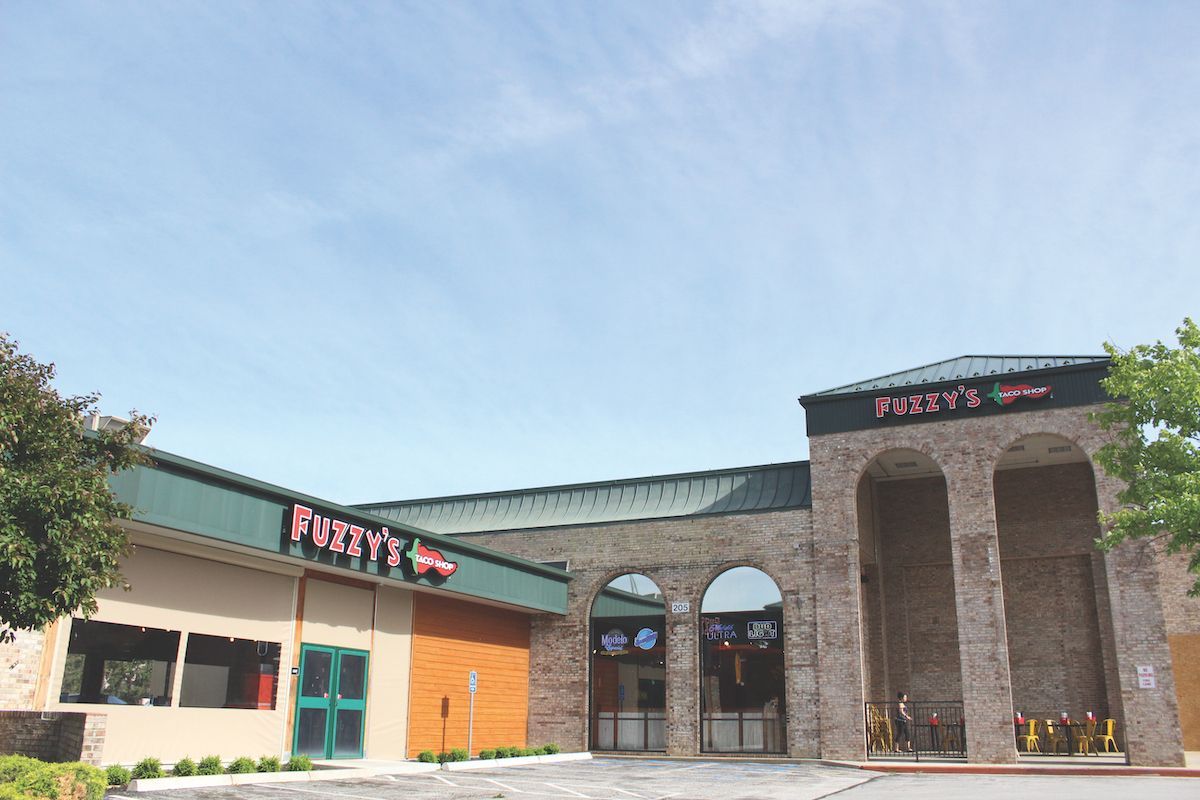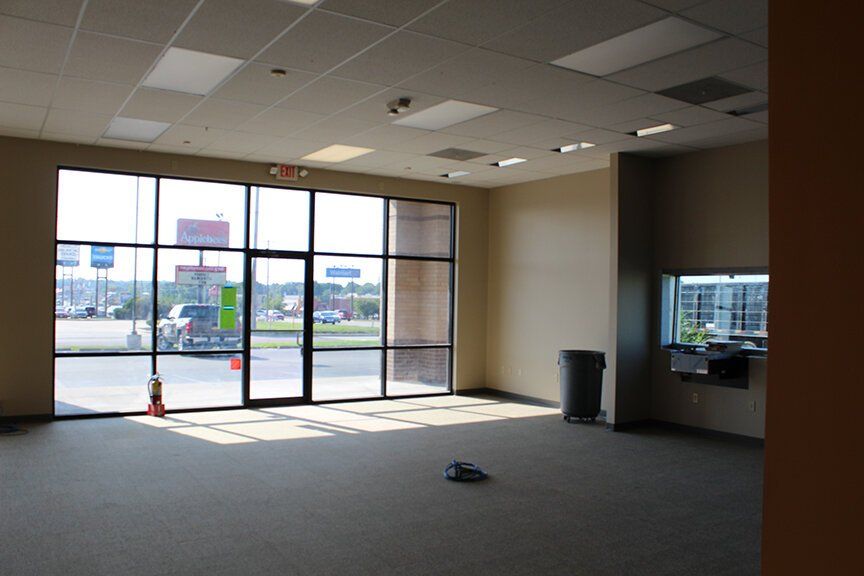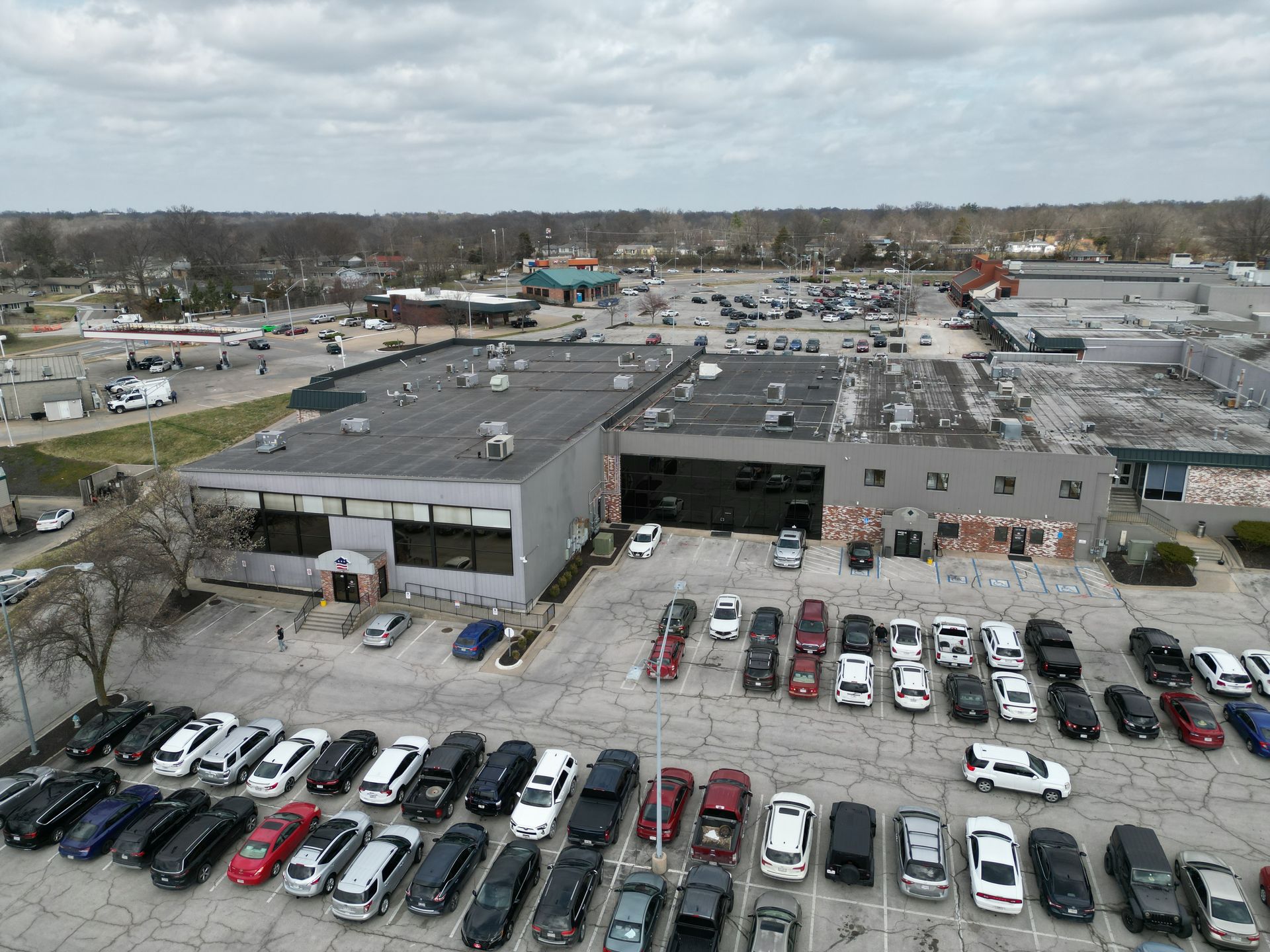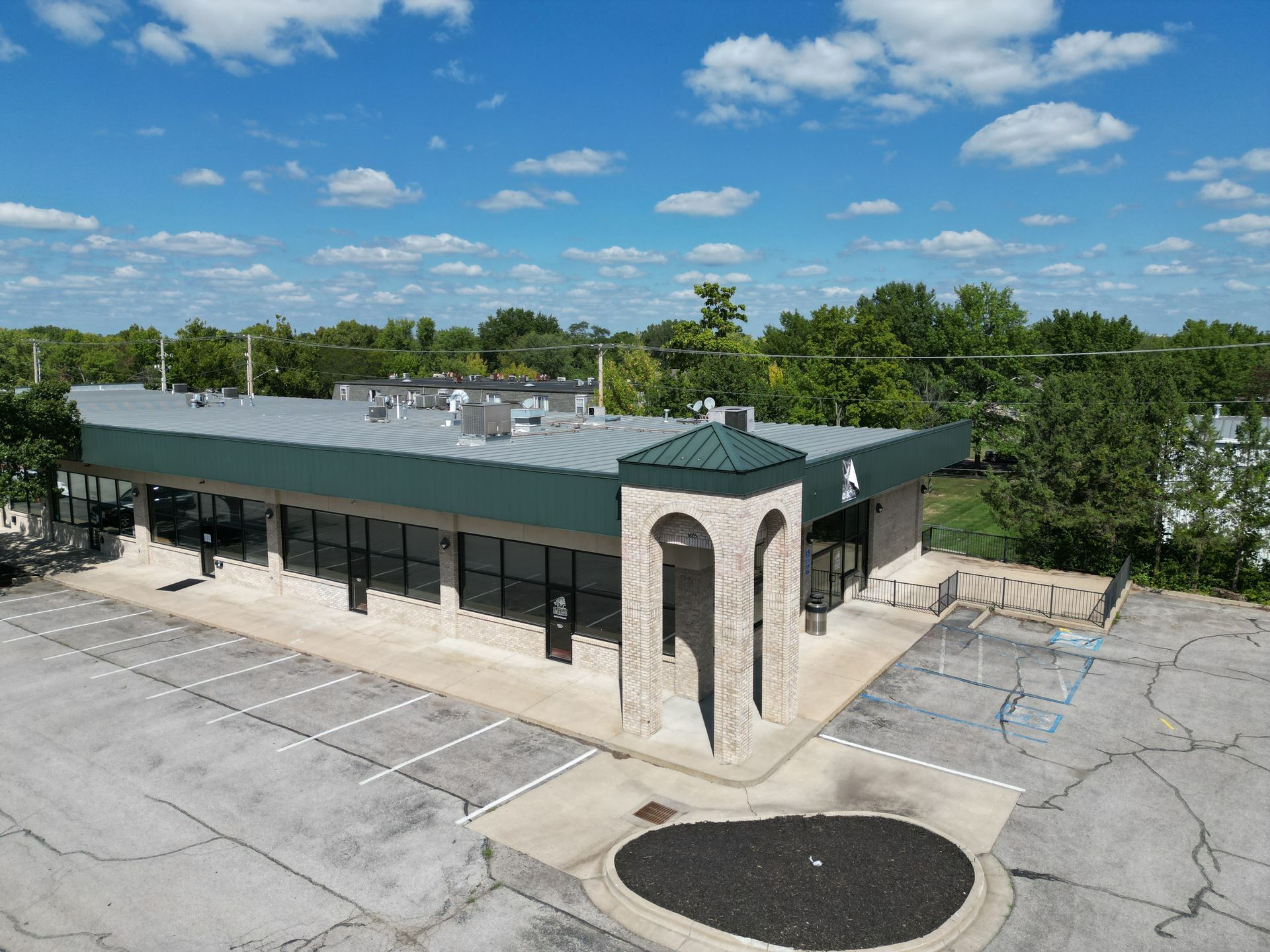Different Types of Commercial Lease Agreements in Missouri

Which Commercial Lease Agreement Best Fits Your Business in Columbia, MO? Get the Overview You Need From Our Commercial Real Estate Experts
When you’re opening a business and need to rent space, you need to know what you’re getting into. After months of searching for locations with the best traffic, a good population, and a reach to your target market, you need to make an informed decision before signing a commercial lease agreement. A commercial lease agreement is a contract in which a business owner rents property from a landlord, allowing them to use the space for their professional operations. This is required for anybody who rents commercial real estate in mid-Missouri, from restaurants to retail stores. However, there are various types of commercial lease agreements, and all of them have distinct conditions meant to support different business models.
You and your landlord will cover important ground rules, including who is responsible for utilities, how much the base rent will cost, who will maintain the building, and other hard-hitting questions. These agreements are significantly different from residential leases because they are much more negotiable, allowing the two parties to create a customized agreement. Follow along with Lindner Properties as we explore the most well-known types of commercial lease agreements and the pros and cons of each. We’ve been offering our commercial real estate skills to the Columbia, MO community for over 45 years, and the listings we feature are the best of the best.
The Most Common Commercial Lease Agreements Among Mid-Missouri Business Owners & Landlords
Consider signing a full-service lease for your rented commercial property in Columbia, MO
The first kind of contract is a full-service lease, otherwise known as a gross lease. With this type of agreement, the tenant agrees to pay a fixed rental rate and sometimes utilities, while the landlord handles just about everything else. That “everything else” typically includes costs for operating the building such as property taxes, maintenance fees, and insurance. The landlord may also be responsible for smaller, more frequent responsibilities like hiring landscapers for the exterior or cleaning services to keep an office clean.
A full-service lease can be beneficial to a commercial property renter for multiple reasons. Choosing this agreement comes with a fixed rate, meaning your payments will consistently be the same price with no extra costs. Additionally, a full-service lease ensures the tenant doesn’t have to worry about the general maintenance of the building while also running a full-time business. If you are looking to rent an office or retail space, especially one that shares other tenants under one roof, a full-service or gross lease is a highly recommended option.
On the other hand, you need to be aware of the potential downsides to a full-service lease. Remember that fixed rental rate? Since a full-service lease puts many of the building expenses under one simple cost, these rates can be higher than with other commercial lease types. Discuss your budget and goals for your mid-Missouri business with a trusted voice in commercial real estate, Lindner Properties.
Modified gross leases in mid-MO provide a balance between landlords & tenants
Remember that these contracts can vary to fit nearly any situation regarding commercial rentals in central Missouri. Even a specific type of commercial lease agreement can differ in the details from others. In most cases, however, a modified gross lease requires the tenant to cover the base rent, a fraction of the building’s operation costs, and utilities. The landlord will take care of the remaining operating expenses. This method is the closest to a true 50-50 agreement between tenant and landlord and is incredibly common among commercial properties in Columbia, MO.
Much like a full-service lease, modified gross leases have the advantage of a fixed price on rent, giving you the ability to effectively budget your professional expenses every period. Signing a modified gross lease also reduces the cost of day-to-day operations by dividing it with the landlord, giving the tenant some control over maintenance without the stress of handling it all. Because these agreements are so flexible, you can even delegate the responsibilities as you and the landlord see fit–one can handle insurance while the other covers minor repairs.
Be careful before ultimately choosing a modified gross lease in mid-Missouri. Although the base rent may be consistent, the portion of operating costs has the potential to be more unpredictable. For example, a big storm may damage your leased commercial property, and depending on the terms you may be responsible for the expensive repairs.

There are three different types of net leases to choose from for your Columbia, MO business
A net lease is a particular category of commercial lease agreements in which the tenant decides to pay rent, utilities, and a significant portion of the building’s real estate taxes, common maintenance, and insurance. Net leases vary based on how much the landlord covers and how much they leave for the tenants to pay on the rented commercial space. There are three types: single, double, and triple net leases. These are common for mid-Missouri businesses because the fixed rate is typically lower and net leases are simple to adjust with your landlord.
What is a single net lease agreement & how does it benefit central Missouri tenants?
With a single net lease, or “N” lease, the landlord agrees to pay for the commercial property’s insurance and common maintenance services while the tenant pays rent, utilities, and property taxes in Columbia, MO. This type of net lease requires the least amount of involvement from a commercial renter, serving as a more passive option for business owners who don’t want to cover other operating expenses. That being said, single net leases are not as common in the central Missouri area. This agreement type can apply to any industry and can offer an advantage for smaller start-up businesses. For tenants, it’s important to carefully review the terms of a single net lease to ensure it aligns with their budget and long-term business goals before signing the papers.
Double net leases are a popular type of commercial lease agreement in mid-Missouri
In the hierarchy of net leases, a double net lease or “NN” lease is the next level up. Under a double net lease, the tenant is given more duties to pay for a commercial office or retail space in central Missouri. On top of rent, utilities, and property taxes, the tenant also pays for insurance premiums. Meanwhile, the landlord is in full charge of maintaining the building–patching the roof, updating the exterior, and more.
When you sign a double net lease, you retain some autonomy over the commercial space without the weight of managing everything by yourself. In a rental space with several tenants, these prices on operation costs are also distributed evenly based on how much space you occupy. However, the tenant will need to plan for insurance premiums and deductibles, and in the case of an emergency, they will have to be the one who speaks with an insurance company.
Manage your commercial real estate in Columbia, MO under a triple net lease
The last type of net lease is the triple net lease, or “NNN”. If you are a business owner who wants more freedom to manage or change the building where you work, this might be one of the better commercial lease agreement options in mid-Missouri. In the conditions of a triple net lease, the tenant will pay their base rent plus all of the property’s expenses, from insurance to everyday maintenance. This lease usually has a longer term than other net leases, and it is one of the most commonplace agreements among tenants and landlords.
One advantage of a triple net lease is that it allows the tenant to improve the building and personalize it to their professional needs. If you need a replacement in the office or a repair in your retail space, you don’t have to wait for the landlord to call for help. The rental rate is also generally lower with a triple net lease since the tenant assumes full responsibility for the building.
Beware of commercial properties offering this type of lease if it already needs significant maintenance. Some landlords can make tenants overpay for insurance premiums, property taxes, and other rates over time.
Want full responsibility over your commercial property in mid-Missouri? Ask your landlord about absolute NNN leases
While triple net leases can offer some room for landlords to contribute help with costs like repairs, an absolute triple net lease(or absolute NNN) is different. Under an absolute NNN lease, the tenant is completely responsible for the upkeep of a rented commercial property in Columbia, MO. This is practically ownership of the building for a tenant without actually having to buy it.
Absolute triple net leases aren’t right for every business. As one of the less frequently used leases, this type of agreement requires the tenant to have several years of experience, a commitment to the contract, and a good credit score. If you’re unsure about choosing an absolute NNN lease, get in touch with a trusted professional for advice.
See if a percentage lease is right for your retail space in the central Missouri area
Do you want a lower base rent without covering the cost of real estate taxes, insurance, and other commercial property expenses? Another kind of lease agreement is the percentage lease, and in this case, the tenant pays the fixed rental price along with a percentage of the business sales they make. This is a highly common practice for people renting retail space in Columbia, MO. Landlords tend to ask for six to seven percent of the gross business sales. This can be a good compromise depending on your specific needs and how you prioritize your budget, but be careful if you’re uncertain about the outlook of your business and can’t predict sales.
Get in Touch With Lindner Properties in Columbia, MO & We’ll Find the Perfect Commercial Lease Agreement for You!
At Lindner Properties, we don’t just offer one-time service. Our dedicated team, with decades of experience, remains in contact with many long-term clients because we’re all about building genuine relationships. Since 1980, we’ve continued to expand our knowledge of commercial real estate, reaching new locations like Sedalia and Jefferson City, MO, and even furthering our expertise to the Destin, FL community! Learn more by reaching out to Lindner Properties, and we can agree on what’s best for your business.










